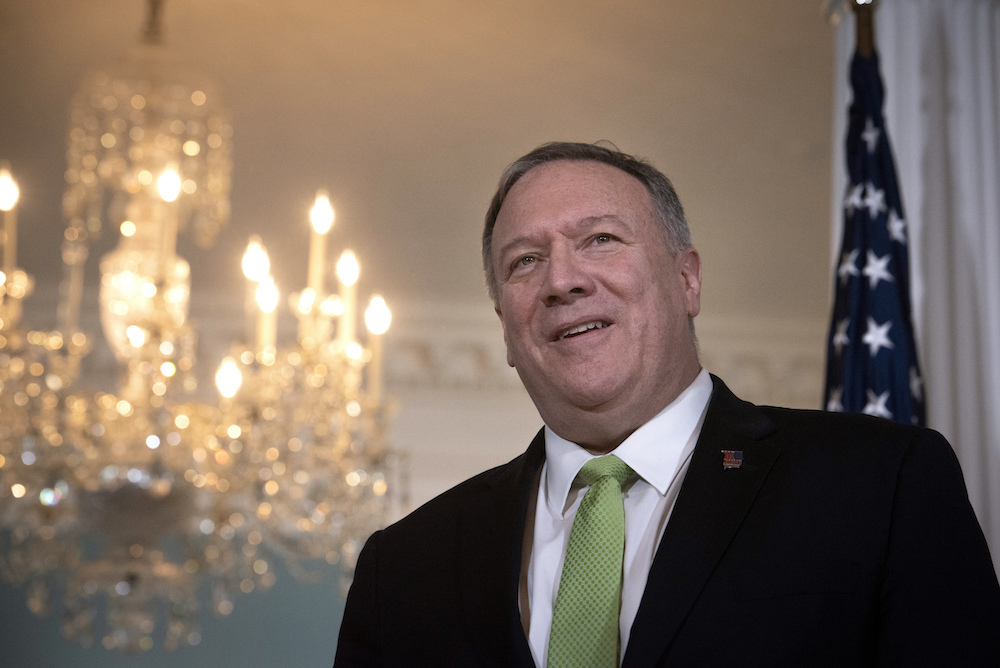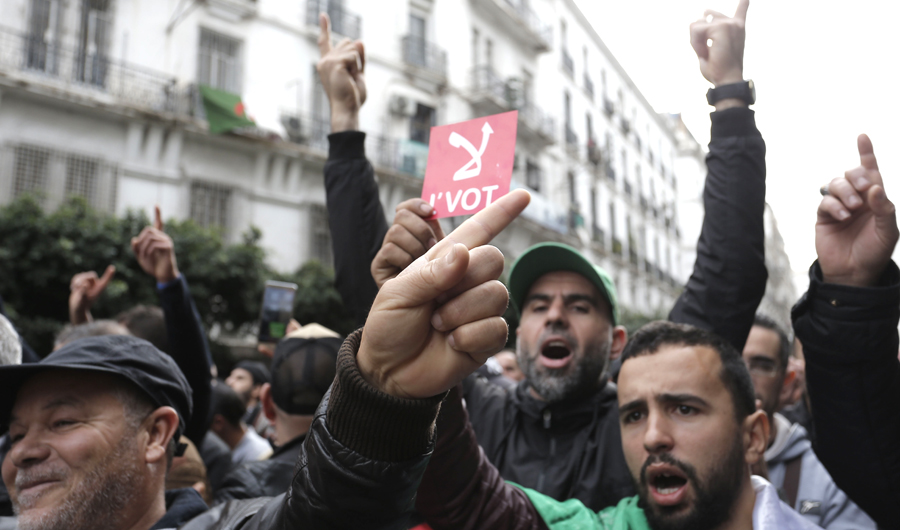What next after Turkey’s former PM launches new party?
ANKARA: Turkey’s former Prime Minister Ahmet Davutoglu held the long-awaited publicity meeting for his new political party, the Future Party (Gelecek Partisi) on Dec. 13 in Ankara, a day after he registered it with the Turkish Interior Ministry.
The press conference was broadcast with English and Arabic simultaneous translations.
Davutoglu has previously attached high importance to ties between Turkey and the Arab world, and has repeatedly called for a reengagement with major Arab countries.
The party is expected to erode support for the ruling Justice and Development Party (AKP) and President Recep Tayyip Erdogan, diminishing his grip on the Turkish Parliament.
Gelecek Partisi is the first breakaway party from the AKP, which will be followed by a second, formed by Erdogan’s ex-economy tsar, Ali Babacan, with his technocrat and liberal team expected to launch in the first week of January.
Disgruntled voters
Paul T. Levin, director of the Stockholm University Institute for Turkish Studies, said Davutoglu may well have some success in siphoning disgruntled AKP voters away from Erdogan with Babacan.
Davutoglu, once a close ally of Erdogan, gave many references in his address to the bad political management of Turkey. He underlined his support for freedom of religion and belief, liberty, equality, the fight against nepotism and corruption, transparency in party financing, the rule of law, and the return to the parliamentary system.
“Today we establish the party by saying: The future belongs to our people, the future belongs to Turkey,” he said.
According to Levin, unlike the clique that now rules the AKP, Davutoglu does not have the reputation of being mired in corruption and nepotism.
“He has strong Islamist credentials and his outspoken criticisms of the AKP’s authoritarian turn may entice some religious conservatives dissatisfied by the AKP to switch in protest,” he told Arab News.
The council of the party’s founders, which has 155 members, symbolizes different segments of Turkish society, with hijab-wearing women, Christians, Kurds, Alevites and others all represented.
HIGHLIGHTS
• The new party is expected to erode support for the ruling Justice and Development Party (AKP).
• Davutoglu, 60, resigned from the AKP in September, saying Erdogan’s party was unable to solve Turkey’s immediate problems.
It is the first time in Turkish history that Turkish citizens with Greek, Armenian and Assyrian roots have taken part in a founders’ council. Several associations of Roma, Caucasus and Arab-origin communities were also present.
Ayhan Sefer Ustun, former head of the parliamentary Human Rights Commission, is one of the 18 former deputies from Erdogan’s AKP who initiated the party.
Future Party
He said they launched Future Party because the AKP drifted from its core principles like liberty, pluralism, and participative democracy.
“Our party is a new breath into Turkish politics. The participation of so many members to the council shows that there is a need for such a political move. It is an alternative for the voters,” he told Arab News.
The Future Party has the support of wealthy businesspeople and civil society representatives as well as academics.
Davutoglu, 60, resigned from the AKP in September, saying Erdogan’s party was unable to solve Turkey’s immediate problems because each intra-party criticism was labeled as “treason.”
His rebellion within the AKP was mainly triggered by the party’s critical losses in nationwide local elections in March, especially in Istanbul and Ankara, as well as other normally safe areas.
Levin said Davutoglu lacked the broad popularity of his rival, though, which could hinder him.
The next elections in Turkey are set for 2023, but there is a growing expectation for a snap election next year.
According to Turkish law, a political party is eligible to stand if it completes the establishment of local branches in at least half of the cities throughout the country, and holds its general congress six months before elections.
“Would Davutoglu be able to climb above the single digits in the polls? It would greatly surprise me and most other observers. Granted, the next election is scheduled for 2023, and that is exactly three lifetimes in Turkish politics, so never say never,” Levin said.
On the day of the party’s launch, the newly established nationalist Good Party’s leader, Meral Aksener, announced that it would support the Future Party with deputies to help make it into Parliament at the next election.
It is almost certain that the new breakaway parties will enter an alliance with relatively established political parties to overcome the 10 percent electoral threshold.

Former PM calls for overhaul of Turkey in challenge to ErdoganErdogan’s former allies to challenge AKP’s rule in Turkey



